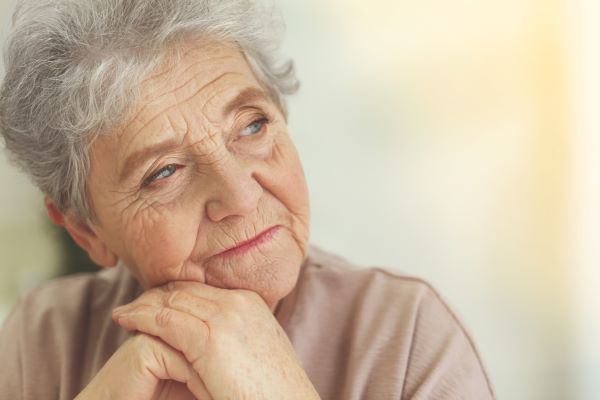The feeling of nervousness or anxiety is a common emotion we all experience in response to stress. Biologically, nervousness or anxiety is a protective emotion. However, it is not normal for anxiety to affect everyday tasks. Frequent or consistent feelings of overwhelm or anxiousness may indicate an anxiety disorder. According to the Geriatric Mental Health Foundation, anxiety affects 10-20% of the older adult population and is often undiagnosed.
What is Anxiety Disorder?
Anxiety disorder is a mental illness. It’s classified by excessive or disproportionate feelings of worry, fear, dread, or apprehension. Anxiety can cause a generalized uneasiness or affect one’s ability to complete everyday tasks. There are several types of anxiety disorders. However, the most common anxiety disorders in older adults are as follows:
- Generalized Anxiety Disorder (GAD) is the most common type of anxiety disorder. It is classified by the constant worrying of everyday life.
- Post-Traumatic Stress Disorder (PTSD) is the result of a past traumatic event. Someone suffering from PTSD can be triggered into a state of severe anxiety, nightmares, flashbacks, or uncontrollable thoughts of the traumatic event.
- Social Anxiety Disorder is anxiety that is induced by social settings.
- Panic Disorder, also known as panic attacks,is classified as sudden episodes of severe fear or terror that last for several minutes or more.
What are the Risk Factors?
While anxiety can happen at any age, several risk factors exist in older adults. These risk factors are as follows.
- Physical health causing excessive worry
- Past traumatic experiences
- Constant daily stress
- Sleep issues common to older adults
- Pessimism
- The use of steroids, stimulants, or anti-depressants
- Alcohol or recreational drug use/abuse
- Prescription medication abuse
- Physical limitations and degenerative changes
- Chronic medical conditions
- Experiencing loss
Why is it Important to Address Anxiety
Not only does anxiety affect a person’s psychological well-being, but it also affects physical health. This fact is even more apparent in our older population. As we age, health conditions become more prevalent, and anxiety disorders can make these health conditions worse. Anxiety causes biochemical changes in the body. These changes cause inflammation, increasing the risk of existing diseases and precipitating new health issues. If an anxiety disorder is not treated, it can lead to poor physical health, cognitive impairment, and poor overall quality of life.
What are the Symptoms of Anxiety?
Symptoms of anxiety vary. However, common signs in older adults include the following.
- Shakiness
- Feeling panicked
- Dizzy or lightheadedness
- Difficulty breathing
- Sweating
- Nausea or digestive issues
- Confusion
- Chest pain
- Muscle tension
- Irritability
- Insomnia or inability to sleep
- Withdrawn behavior, isolation, or avoidance
- Changes in weight or appetite
- Irrational thoughts
- Obsessive thoughts or compulsive behavior
How is Anxiety Treated?
If you suspect that you or a loved one is suffering from anxiety, it’s important to see a doctor in order to receive a proper diagnosis. Fortunately, once diagnosed, anxiety is highly treatable. Treatment for anxiety disorders is typically a combination of medication and therapy. However, some may only require one form of treatment. For seniors specifically, anti-depressants are recommended over traditional anti-anxiety medications, as they are at higher risk for complications.
Anxiety disorders can take on several different forms. All of which can drastically affect an older adult’s quality of life. However, anxiety disorders are highly treatable. If you believe that you or a loved one are suffering from an anxiety disorder, it’s imperative that you seek help from a medical professional. For more information and resources, contact our elder law attorneys today.
This article offers a summary of aspects of elder law. It is not legal advice and does not create an attorney-client relationship. For legal advice, please contact our Albuquerque office at (505) 830-0202.

